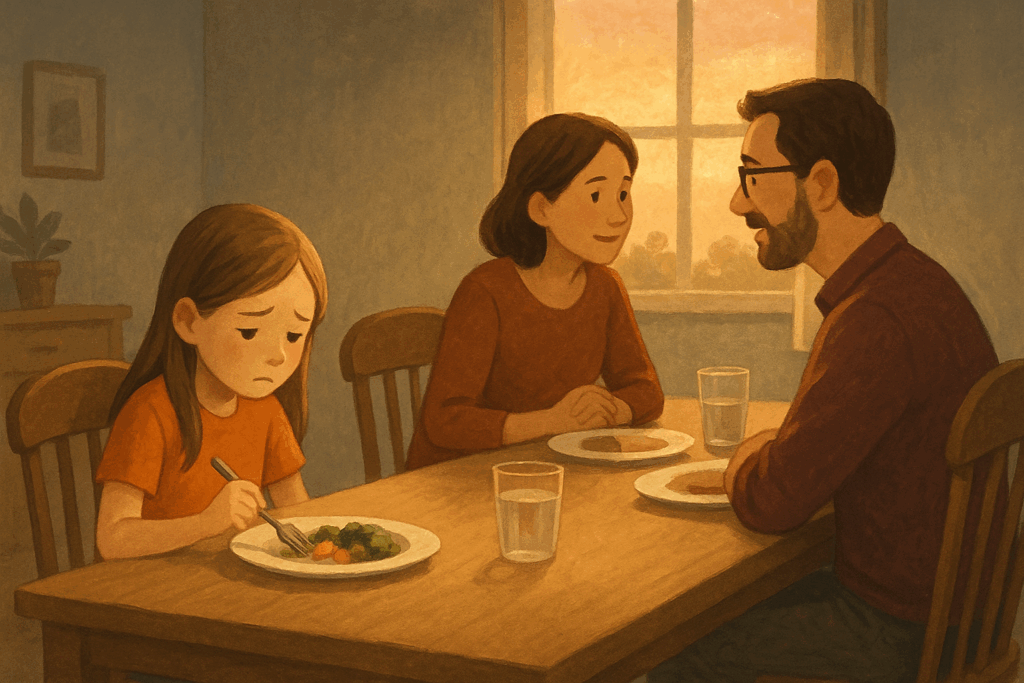
You sit down at the table for your evening meal.
You weren’t asked what you might like.
Instead, you’re presented with a plate of food you’ve said before you don’t enjoy.
Would you speak up?
Would it be OK to say, “Actually, I don’t like this”?
Now imagine you do say something but your words are dismissed.
You’re left unheard.
As an adult, how would that leave you feeling?
Pretty dismissed.
Pretty annoyed.
Maybe even a bit emotional.
Children feel this too.
They’re not tiny robots.
They’re people, just new to the world, with thoughts, preferences, and feelings that matter.
And yet, when they speak up, it’s often called “rude” or “disrespectful.”
Why?
Because they don’t always have the words.
Because their emotions can be messy.
Because they’re still learning.
If they get upset because they’re not heard, then something has gone wrong.
Somewhere along the way, communication between adult and child has broken down.
As adults, we’re given space to express our whole selves.
Children need that too.
We must make space, safe space for children to feel, to speak, to be heard.
Because when a child shares a feeling, that’s not disobedience.
That’s courage.
And more importantly… that’s trust.
Disclaimer: This post was written by me and edited by ChatGPT for flow and consistency